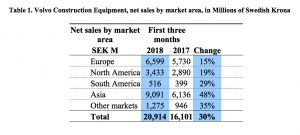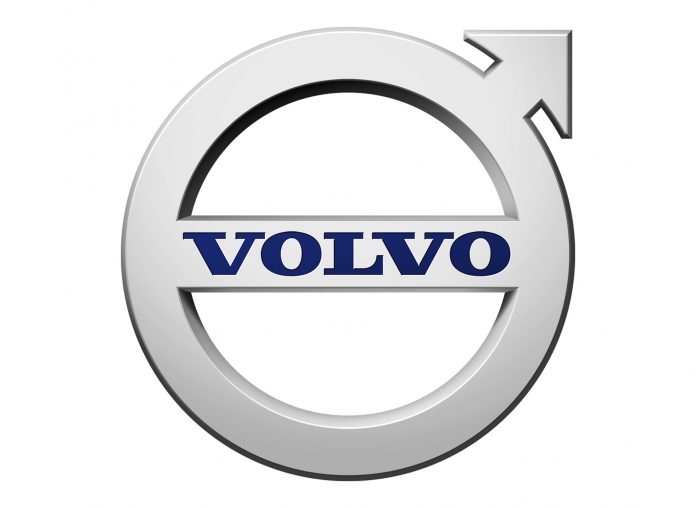![]()
Significant market demand increases in all major regions helped propel Volvo Construction Equipment to a strong first quarter 2018, with sales up 30% and profitability up 79%. 
Volvo Construction Equipment (Volvo CE) enjoyed a confident first financial quarter of 2018, with strong demand increases in all major markets – especially in Asia – helping the company to report strong growth in sales, profitability and order intake.
During the first three months of 2018 Volvo CE saw net sales jump by 30% to SEK 20,914 M (SEK 16,101 M in Q1 2017). Adjusted for currency movements the results were even better, up 33%. Operating income was also positively impacted, rising to SEK 2,888 M, up a very significant 79% compared to SEK 1,615 M in the first quarter of 2017. Operating margin also saw strong improvement, at 13.8%, compared to 10% in the same period the year before.
In the first quarter of 2018 Volvo CE also enjoyed an increase in order intake, which rose by 37% to 23,938 machines, with increases in orders coming from all markets, but particularly North America and Asia. Deliveries were also up 35% during the period, to 22,102 machines.
Market situation
The construction equipment market continued to improve during the quarter, with all regions showing growth. The European market was up 10%, driven by increased demand in Germany, Italy and parts of Eastern Europe. North America was up 21%, driven mainly by demand for excavators. South America continued to recover from low levels, rising 27%. Asia (excluding China) was up 21% compared to last year, boosted by growth in India, Indonesia, Turkey and the Middle East. Strong demand for large excavators and wheel loaders helped the Chinese market improve by 13% during the quarter.
 “In general, market demand is strong, and Volvo CE has continued to improve sales and profitability,” commented Volvo CE’s president Melker Jernberg. “We are leveraging the benefits of these increased volumes well, while at the same time keeping a tight control of costs.”
“In general, market demand is strong, and Volvo CE has continued to improve sales and profitability,” commented Volvo CE’s president Melker Jernberg. “We are leveraging the benefits of these increased volumes well, while at the same time keeping a tight control of costs.”























